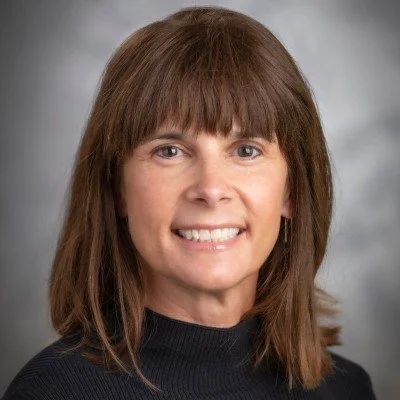DEI Spotlight: Chelsea Hernandez from Northern Illinois Food Bank
We love featuring different DEI professionals on our blog to share their philosophies, tips, personal stories, and more. Today, we’re highlighting Chelsea Hernandez, a DEI Specialist at Northern Illinois Food Bank. Read to learn more about Chelsea’s story, her day-to-day work, and one piece of advice she would give to someone starting a career in the DEI space.
What does your role as DEI Specialist at Northern Illinois Food Bank entail?
As DEI Specialist at the Food Bank my role ultimately ties to our mission - “To provide nutritious food and resources for our neighbors, with dignity, equity and convenience, through partnerships and innovation.”
That “equity” piece is really critical- and to be able to fulfill that commitment as an organization, we need to be able to hold ourselves accountable and be open to growth.
In my day-to-day I coordinate our efforts internally with our DEI Committee to draft policy changes, provide resources, and coordinate training for our staff. I work with our Board DEI Committee to ensure we are being transparent in sharing our goals and priorities with folks across our organization.
As a food bank, we are part of a huge network, so I support our agency team to provide those resources, training, and discussions centered around diversity, equity, and inclusion to our community partners–food pantries and soup kitchens across our thirteen county service area.
What does your professional background look like? How have your past career experiences informed how you think about DEI?
Looking back, I think a lot of my experience has centered around equity and access work–I worked for 3 years at the Georgetown University Center for Multicultural Equity and access. A lot of my role centered on coordinating programs and managing resources for students. I also have supported education access programs like The Institute for College Preparation in Washington D.C. And Yollocalli Arts reach in Chicago. Working in this space and with individual students really instilled an understanding in me that there is no “one size fits all” approach when it comes to equity and access work–each community and each individual faces specific barriers and has unique identities and experiences. Part of this work is listening and approaching solutions with humility.
How do you define diversity, equity, and inclusion? What is your philosophy?
Taking time to sit with this question is really important. I feel like these words have found themselves more and more present in the common vernacular of organizations and in the corporate space–taking time to be critical about what we are really talking about when we’re talking about DEI is difficult to do sometimes, but goes a long way to creating sustainable and impactful change.
Diversity, Equity, and Inclusion don't have interchangeable definitions, and to me–diversity is difference of experiences and identities, equity is engaging and working to dismantle the barriers that disproportionately affect individuals with certain differences, and inclusion is building a sense of belonging across difference.
All these working definitions culminate into action- starting with self reflection and, again, taking time to sit with those difficult questions.
What is the most rewarding part of your DEI work?
I think being able to connect that education piece and encourage reflection through my work has been extremely rewarding. For most people (or at least in my case) we don't really get an opportunity to pause day-to-day and reflect on our identity or experiences–even though they impact the way we navigate the world.
Personally, I’ve felt profoundly empowered by engaging in intergroup dialogue and diversity education. Being able to learn from others and be vulnerable in order to work towards better understanding has been really important to me, and I hope that through my work I can bring some semblance of this to other people.
The NIFB team!
Why is it so important for companies to have conversations about DEI at this time?
DEI has become such a big part of the public consciousness and this definitely includes the workforce. There is of course the reality that employees who feel valued and seen will be more engaged. Workplaces that prioritize DEI are more innovative and have better retention rates too!
It’s also impossible to ignore the reality that we live in, in the wake of such a profound wave of racial reckoning and an ongoing pandemic, the voices calling for recognition, justice and safety across their networks (and workplaces) are undeniable. Collectively, we need to acknowledge that we can't look the other way anymore- and face inequity and injustice head on.
Who is someone you admire?
As someone who often struggled to find her voice- I feel like I have drawn a lot of strength from authors who were willing to pull from their experiences. Sandra Cisneros is my favorite author, best known for writing The House on Mango Street. Her work is so honest–reading about how her characters often struggle with defining who they are was so validating for me. I’m really grateful for having examples of bravery through vulnerability through her work.
What is one piece of advice you would give to someone who is starting a career in DEI?
I think a piece of advice I would share is that the work has to start with you.
I certainly have more to learn in this space, and feel like that will always be the case. Be curious and willing to ask questions. What am I bringing with me into this work? What do I hope to get out of it?
Reflect and take time to check in with yourself–remember that you have room to grow, and that may be a bit intimidating–but it's exciting too!
Thanks, Chelsea! Check out our other DEI spotlights below.










